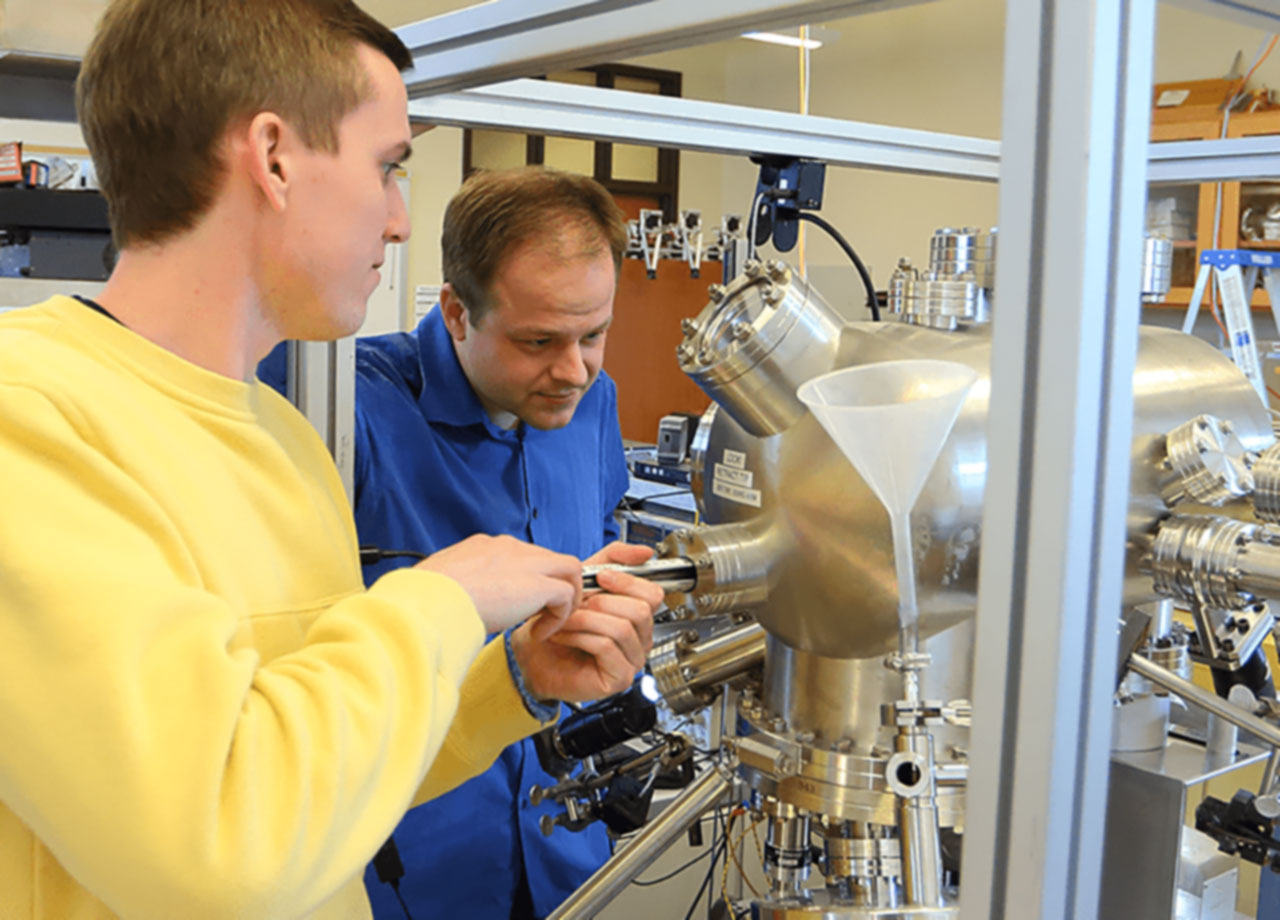Physics Teaching Major
The University of Northern Iowa is home to an exemplary teacher preparation program, and the Physics Teaching program is no different.
Our program combines a broad education in physics with UNI’s outstanding educator preparation program, giving you the chance to take classes in both the Physics Department, and our award-winning College of Education.
Because we understand the value of learning by doing, each of our physics teaching majors will gain 725+ student teaching hours before graduation, and leave with all of the certification needed to start teaching right away.

Top Program
UNI is home to a nationally-recognized teacher preparation program.
95%
Of UNI graduates are employed or continuing their education within six months of graduation.
725+
Hours of classroom teaching experience before graduation.
Find out More About Physics Teaching
Fill out your information here and we'll be in touch!
Contact us directly at:
UNI Department of Physics
University of Northern Iowa
215 Begeman Hall
Cedar Falls, Iowa 50614-0150
Phone: 319-273-2420
Email: physics@uni.edu
Becoming a Teacher
What’s the process?
Begin major content: Start building your foundation in your chosen area of teaching.
- Begin your coursework.
Start building your foundation in your chosen area of teaching.
- Get at least 10 hours of pre-program experience in the field.
Work with PreK-12 students to get a closer look at teaching as a career. Experience prior to enrollment may fulfill this requirement.
- Apply to teacher education.
Maintaining above a 2.5 GPA? Apply to the UNI Teacher Education Program -- and celebrate at the Teacher Education Convocation & Celebration!
- More courses! More field experience!
Teach your first lessons during 35 hours or more in local schools for Internship 1. Next up? Internship 2, another 35 hours or more of immersion in classrooms.
- Student teach.
It all comes together in your final semester of 16 weeks of student teaching in Iowa, nationally or even internationally!
- Graduate, get your license to teach.
Get your diploma and then time for licensure! We’ll assist you through the process with the Iowa Board of Educational Examiners.
What sort of classes will I take?
- Learning and Motivation in Classroom Contexts: Examination of the influence of cognitive, motivational, and socio-cultural factors on students' learning in classroom contexts, with an emphasis on implications for classroom instruction and improved student achievement.
- Physics: Theory and Simulation: Calculus-based course covering the more advanced topics in introductory physics. Topics include Newtonian mechanics and applications, Maxwell's equations and applications.
- Professional Experiences: A mix of clinical internships, methods (“how to”) courses and student teaching built into your coursework where you’re actively involved in preparing and teaching in physics classrooms.
- Educator Essentials: A common set of course options for all teacher education students to complete -- gives future Panther teachers a foundation to build upon.
What I enjoy most about physics is the fact that it challenges you, and helps you exceed your own expectations.

Hands-on Learning
Our department prides itself on the close interaction between faculty and students both inside and outside the classroom. Personalized attention, combined with research opportunities and independent laboratory projects, allows students to work with sophisticated equipment and to gain research experience at the undergraduate level.
Students have opportunities to work with faculty in such research areas as magnetic properties of materials, computational materials science, biological physics, statistical physics, optical spectroscopy, low-dimensional structures and surfaces, and physics education.
